
Youve probably asked yourself the question, ‘How can I make my metal detector more powerful?’
If you want to get serious about metal detecting, then you will need to have a machine that can search deep and accurately find the valuable objects that you are looking for. Here are a few ways in which you can make your metal detectors more powerful without spending a fortune:
The first thing you can do is to increase the coil size. The larger the coil, the more powerful the machine and the deeper it can search. However, larger coils are also more difficult to handle, so it is important to find a balance between size and ease of use.
Another way to make your machine more powerful is to get all the settings correct. And you will see why it is important to experiment with different frequencies and settings to find the one that works best for your needs.
Finally, one of the simplest ways to make metal detectors more powerful is to make sure that it is in good condition. A well-maintained machine will outperform one that is old and neglected. Therefore, take care of your machine and perform regular maintenance to ensure that it continues to work at its best.
By following these simple tips, you can make your metal detectors more powerful without spending a fortune. With a little bit of care and attention, you can ensure that your machine will be able to find the valuable objects that you are looking for.
Here are a few ideas that you may want to try to get more power and depth from your metal detectors..
Wrap the cable the correct way
Any experienced metal detectorist will tell you that one of the most important things you can do to prolong the life of your equipment and also to make it more powerful, is to wrap your metal detector cable correctly. Not only does this help to prevent tangles and knots, but it also protects the delicate wiring from damage.
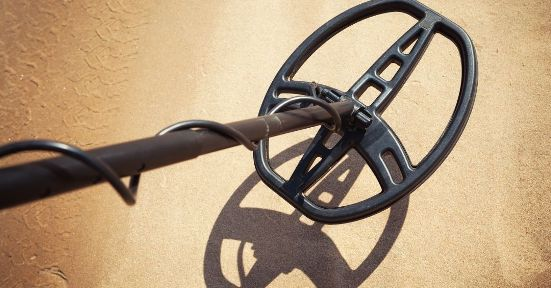
In addition, wrapping your cable correctly helps to ensure that there are no accidental breaks or disconnections. The last thing you want is for your metal detector to lose power in the middle of a hunt!
By taking a few minutes to wrap your cable properly, you can avoid these problems and keep your metal detector running smoothly for years to come.
Stick to the right swinging technique
When metal detecting, one of the most important things to keep in mind is your swing. The best way to swing is smooth and even, with the detection coil held close to the ground.
You should also avoid swinging too wide, as this can lead to missed targets.
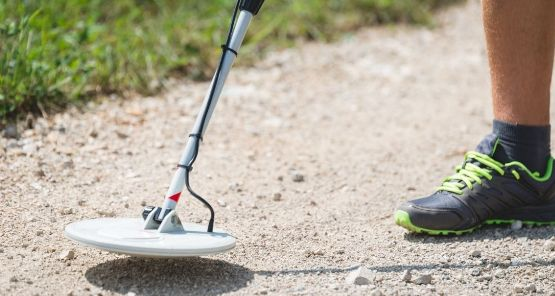
Another thing to keep in mind is your speed; slower swings will give you a better chance of finding small targets, while faster swings are better for covering more ground.
It is also important to overlap each sweep so that no area is missed. By following these tips, you can ensure that you make the most of your metal detecting outings.
The number one mistake people make when swinging metal detectors is not keeping the coil close enough to the ground. You want to keep the coil as close as you can without actually dragging it on the ground. This will help you avoid misses and also increase your chances of finding small targets.
It is also important to swing at a consistent speed; if you swing too fast, you will miss smaller targets, and if you swing too slow, you will miss larger targets. The sweet spot is somewhere in the middle, so it is important to experiment to find what works best for you.
Finally, make sure to overlap each swing so that no area is left unchecked. By following these tips, you can maximize your chances of finding targets and having a successful metal detecting outing.
Clean these parts thoroughly
As anyone who has ever tried metal detecting knows, having a clean machine is essential to success. Dirty metal detectors will be much less efficient than a clean one, and the build-up of dirt and debris can eventually cause problems with the connections.
This can lead to resistance and block some signals, making it more difficult to find your targets. In addition, a clean machine will be lighter and easier to handle, making it less likely that you’ll miss something important.
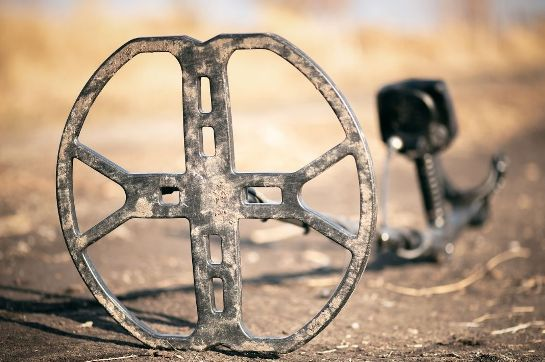
Make sure you check for dirt around connectors and connections as well as the search coil. Dirt interferes with electrical signals, it causes false alarms, and excessive noise too.
It is best to wash coils by washing them with a clean towel. Do not use the abrasive solution – these often cause damage to the plastics.
So next time you go out metal detecting, be sure to give your machine a good cleaning first – it could make all the difference in your results.
Try a different search coil
Many people think that the only way to improve the performance of their metal detectors is to buy a new and more expensive model. However, there are a number of ways that you can upgrade your existing detector to improve its depth and power.

One such upgrade is to install a larger diameter coil. While the standard coils that come with most detectors are fine, upgrading to a coil with a diameter of eight inches plus can make a significant difference in the depth and power of your detector.
The larger coil will be able to pick up signals from deeper in the ground, and it will also be better able to discriminate between different types of metals. As a result, upgrading to a larger coil can be an inexpensive way to improve the performance of your metal detector.
One thing to consider is that a larger diameter search coil will usually mean that your metal detector will be bulkier and more difficult to carry around. However, the improved depth and power that you will get from the larger coil may be worth the extra effort.
If you are serious about finding buried treasure, then upgrading to a larger coil is definitely something that you should consider. Another thing to keep in mind is that a larger diameter coil will also mean that you will have to slow down your sweeping speed in order to get accurate readings.
This is not necessarily a bad thing, but it is something that you should be aware of before making your purchase.
Overall, upgrading to a larger diameter coil can definitely improve the depth and power of your metal detector. Just make sure that you take the time to make sure the upgraded coil will be suitable for your machine.
Ground Balance (very important)
Most “starter” metal detectors (ones that have fewer adjustable settings and are aimed at novices) have a ground balance setting that is set at the factory and cannot be adjusted by the user. These are good starter machines and they will do well in most soil conditions, but they will likely struggle in some highly mineralized environments.
In these more challenging soil conditions, it is often necessary to adjust the ground balance in order to maintain consistent performance. Fortunately, many mid-range and high-end detectors offer the ability to adjust the ground balance, giving users the flexibility to adapt to changing conditions.
As a result, when shopping for metal detectors at the outset, it is important to consider not only the features that are important for beginners but also those, such as the ability to alter, whether manually or automatically, things like ground balance, that will be necessary as your skills level grows.
Aside from fixed, there are three primary sorts of ground balanced:
- Manual ground balance – this allows you to adjust and control the ground balance to reduce the amount of ground signal that you hear. Getting this right will increase the depth of your detector
- Automatic ground balance – your detector’s inner works and electronics will automatically determine what are the optimum ground balance settings for the conditions. This type of adjustment is much more accurate than manually setting the ground balance, plus it’s a lot quicker and easier.
- Tracking ground balance – As you’re searching, your metal detector will constantly change the ground balance setting in order to stay in the optimum setting window.
Be on the lookout for such things as…
Some external things can affect the signals being picked up by metal detectors. One of them is electrical interference. Electrical interference can come from a variety of sources, both external and internal to your metal detector. Common external sources include power lines, electrical fences, and transformer stations.
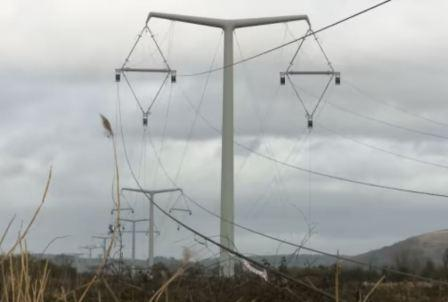
These sources produce a constant low-frequency signal that can blanket an area and make it difficult to hear the weak signals associated with most metals.
Another type of external interference is caused by electrical storms. These can produce a strong pulse that can last for several seconds and completely overwhelm the electronics in your detector.
Another thing to consider is that it could be coming from your own machine. Internal sources of interference include the battery, power cord, and control box of your machine. If any of these components are damaged or malfunctioning, they can produce a signal that will interfere with your ability to hear the subtle signals emitted by metals.
Fortunately, there are a few things you can do to deal with electrical interference. First, try to move away from the source of the interference. This is not always possible, but it may help to reduce the intensity of the signal.
Second, make sure that all of your metal detector’s components are in good working order. This includes the battery, power cord, and control box. If any of these components are damaged or malfunctioning, they should be replaced as soon as possible
Adjust the sensitivity of your detector
When it comes to metal detecting, depth is one of the most important factors to consider. After all, the deeper you can search, the more likely you are to find buried treasure.
While there are a number of factors that can affect depth performance, one of the most important is sensitivity. In general, the higher the sensitivity, the deeper your metal detector will be able to penetrate the ground.
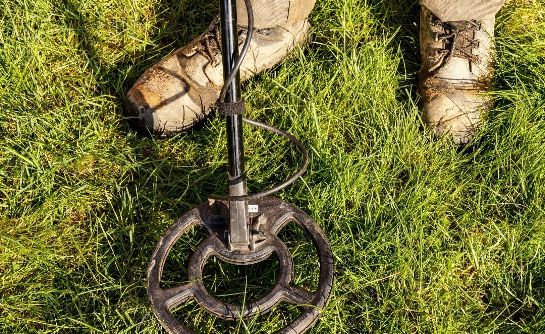
However, there is a balance that must be struck, as too much sensitivity can lead to false readings and missed targets. Too high can result in a reduction in its target identification capability
The best way to adjust sensitivity is to start with a low setting and gradually increase it until you reach the optimum level for your particular model of metal detector. By taking the time to experiment, you can ensure that you get the best possible performance from your equipment.
By turning the sensitivity up to the maximum level, you will be able to achieve greater depth, but this also means that your detector will be more susceptible to picking up small objects and pieces of trash. On the very trashy ground, this extra noise can be overpowering and make it difficult to find anything of value. Also as stated the target identification capability will also be affected.
However, if you are patient and listen carefully, you might just be able to pick out the sound of a deep-buried treasure amid all the noise.
So don’t be afraid to experiment with the sensitivity setting on your metal detector; it might just help you find that hidden cache of gold coins or that diamond ring.
Search when the ground is wet
Many people think that it is better to metal detect in dry conditions, but this is not always the case. In fact, there are several advantages to metal detecting in wet conditions.

First of all, wet soil is more conductive than dry soil, which means that your metal detector will be more sensitive. This will allow you to find smaller and deeper objects that you would miss in dry conditions.
Additionally, wet conditions help to ground your machine, which will increase its power and allow you to search more deeply into the ground.
Finally, wet conditions also help to dislodge objects that are buried deep in the ground and make them easier to find. So next time you go out metal detecting, don’t be afraid to get your feet wet!
Check for software upgrades

Check for software on your metal detector to ensure you have the most up-to-date and powerful tool available. Treasure hunting with an outdated or low-powered metal detector can mean you miss valuable finds or spend hours searching for something that isn’t there.
If you want to keep your metal detector as powerful as possible, checking for software upgrades is essential. Newer models of detectors are constantly being released, with new features and improved performance.
By making sure you have the latest software installed on your detector, you can be confident you’re using the best possible tool for the job. Checking for software upgrades also allows you to take advantage of new features as they become available.
Whether it’s a new detection mode or improved discrimination, keeping your software up to date ensures you’re getting the most out of your metal detector.
Know your detectors’ limits, seriously!
A metal detector can be a great tool for finding hidden treasure, but it is important to know its capabilities before you start hunting. Every metal detector is different, and each one is better suited for certain types of metals.
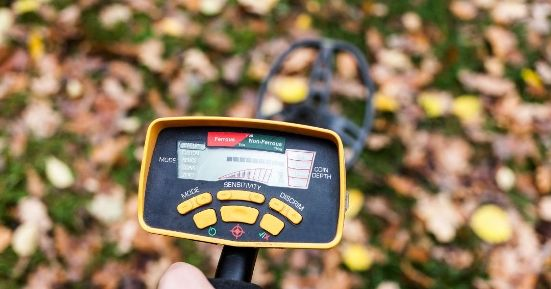
For example, some detectors are more sensitive to small pieces of jewelry, while others are better at finding larger items like coins. Some detectors are ideal for beach treasure hunting, while others would come up short on the sand.
In addition, as we have already discussed, the depth of the detector’s search will also vary. Some detectors can only search a few inches below the surface, while others can reach depths of several inches without any modification whatsoever.
Therefore, it is important to familiarize yourself with your metal detector’s capabilities so that you can make the most of your search. With a little knowledge, you can maximize your chances of finding that hidden treasures.
How important is Discrimination?
As any experienced detectorist knows, discrimination is key to finding buried treasure. Discrimination is the process of identifying metal targets based on their conductive and/or ferrous properties, in order to determine whether or not they are worth digging up.
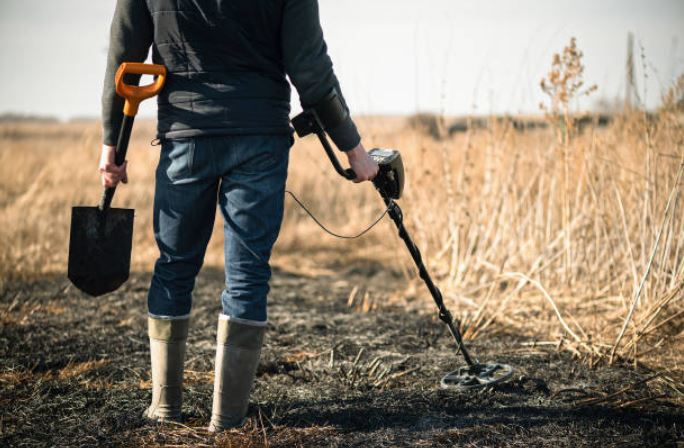
This is useful because it allows detectorists to focus their efforts on finding desired targets, rather than wasting time digging up junk.
In environments where there is a lot of iron or other trash items, discrimination can save a lot of time and frustration. In order to discriminate effectively, it is important to have a deep understanding of the different types of metals that can be found underground.
With practice, discrimination can be an invaluable tool for any detectorist.
Can discrimination affect the detectors’ power?
In reality, this question is back to front.
The more powerful the metal detector, the greater its ability to discriminate between different types of metals. But also remember that the depth of the target also affects its ability to discriminate. The deeper the metal detector detects, the less accurate its ability to discriminate between different types of metals becomes.
Discrimination is an important feature of a metal detector because it allows the user to focus on finding a specific type of metal.
Discrimination ability is also affected by how well the operator understands how his or her particular machine works. Many detectors have manuals that can be helpful in this regard.
Generally speaking, the more sophisticated (and expensive) the machine you use for metal detecting, the greater its ability to discriminate will be. However, even entry-level machines can be quite discriminate if used properly.
Remember the battery life

There are two types of batteries that you can buy for your metal detector. One is the rechargeable battery and one is a single-use or disposable type. The problem with the disposable ones is they don’t last very long, whereas the rechargeable ones do.
A good quality battery will give longer life to your device too, as well as be more reliable.
Have you ever found that your metal detector is not working as well as it should be? The issue might simply be the battery. If you are using a low-quality battery, then this can cause issues with detection and could potentially damage the metal detector over time.
This is why changing the built-in battery to a better quality one is important and should be done correctly so as not to void any warranties or service agreements.
Use headphones to reduce background noise.
Headphones are used by many different people in a variety of ways. For example, they may be used for video games or music; however, they are also essential when metal detecting.
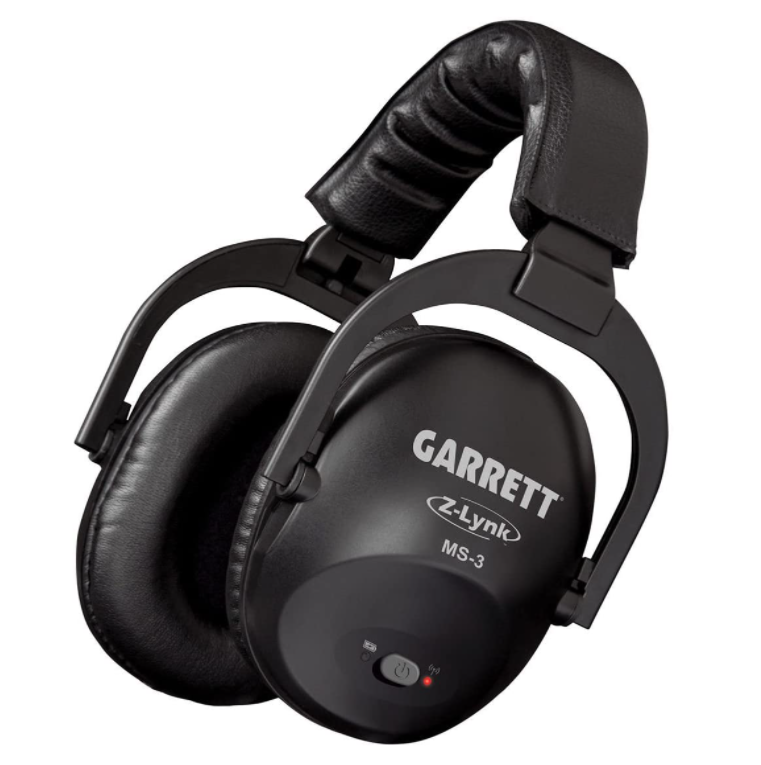
It’s a good idea to wear headphones when metal detecting so that you can listen out for any noises the detector makes. Check out our Bounty Hunter Headphones Review Here!
The beeping noise is called audio discrimination and is great as it helps you hear the signals when metal detecting, when the environment can be a little loud, such as in parks where there are other people around, it is not always possible to hear all of these sounds above the background noise.
Conclusion
These are just a few things that detectorists can do to increase the power of their metal detectors. One is to make certain that your batteries are fully charged – this will ensure that the machine runs at its best and detects metals accurately when you are out and about metal detecting.
Another is to make sure that Discrimination is turned on correctly – this will help focus the detector’s efforts on finding specific types of metals.
Try getting out and metal detecting after a thunderstorm when the ground is wet.
Additionally, using headphones can be helpful in reducing background noise and detecting faint signals.
By following these tips, detectorists can make the most of their machines and find more success in their metal detecting adventures.
FAQ
How can I make my metal detector more powerful?
First, make sure that the coil is properly positioned. The coil is the part of the metal detector that emits and receives electromagnetic signals, so positioning it correctly will help to maximize its range. Additionally, try using a higher frequency setting. This will help to penetrate deeper into the ground and detect larger objects. Finally, consider adding a Discrimination setting. This will help to filter out undesirable metals, such as iron or aluminum, and focus on more valuable metals, such as gold or silver. By making these simple adjustments, you can make your metal detector more powerful and increase your chances of finding hidden treasure.
What makes a metal detector go deeper?
It’s a common misconception that the bigger the detector the deeper it will search. In fact, there are a number of factors that contribute to a metal detector’s depth penetration, including coil size, frequency, and coil orientation. Now there is some truth in that heavier detectors may penetrate deeper into the ground, but they are also more difficult to swing for extended periods of time. The key is to find a balance that suits your needs. For example, if you’re looking for coins, a lower frequency detector with a smaller coil may be more effective than a higher-powered machine. no matter what type of metal detector you choose, though, remember that practice makes perfect. The more you use your machine, the better you’ll become at interpreting its signals.
What setting should my metal detector be on?
There are three main settings that will affect the depth of your metal detector – Sensitivity, Discrimination, and Ground Balance. Sensitivity controls how sensitive the device is to metal objects, while discrimination helps to filter out unwanted items. Ground balance should be set according to the type of terrain you’ll be searching in – if you’re searching in an area with a lot of minerals, for example, you’ll need to adjust the ground balance accordingly. By playing around with these settings, you should be able to find the perfect balance for your needs and maximize the depth of your metal detector.
What’s the best frequency for metal detecting?
Metal detectors come in a variety of shapes and sizes, but they all use electromagnetic waves to detect metalic objects. The frequency of the wave is one of the most important factors in determining how well the detector will work. Low frequencies are best for finding large objects, while higher frequencies are better for detecting small objects. However, high-frequency detectors are also more likely to produce false positives, so it’s important to strike a balance. For most people, a mid-range frequency offers the best combination of sensitivity and accuracy. But ultimately, the best frequency for metal detecting depends on the type of object you’re looking for and the conditions you’ll be searching in.
How do you set the ground balance on a metal detector?
The ground balance on a metal detector is one of the most important settings. This setting helps to cancel out the natural mineral content in the ground so that the detector can more easily find small, metal objects. There are two main ways to set the ground balance on a metal detector: manually and automatically. To set the ground balance manually, you will need to adjust the knob or slider until you find the sweet spot. This can be a bit tricky, and it may take some trial and error to find the perfect setting. Alternatively, most modern detectors have an automatic ground-balance feature that does all the work for you. To use this feature, simply select the AUTO option on the control panel and let the detector do its job. Either way, taking the time to properly set the ground balance will help you get the most out of your metal detector. Always refer to your user manual.



